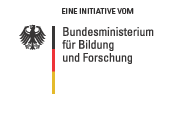Michael Weyand: Between the laboratory and the business plan
-
 <ic:message key='Bild vergrößern' />
<ic:message key='Bild vergrößern' />
- Dr. Michael Weyand Quelle: Weyand
02.01.2008 -
Researching during the day, developing financial plans in the evening – Dr. Michael Weyand from the Chemical Genomics Centre Dortmund can’t complain about a lack of variety. Together with three colleagues, the chemist is taking a path from the laboratory into the business world. The business idea - a new kind of pesticide – has got not only many scientists convinced but also the juries of a number of founder competitions. In 2006, the GO-Bio prize from the German Federal Ministry of Research and Education (BMBF) was added to his list of honours. This means that his idea could soon become a reality.
Weyand has known for a long time that it’s the end application that’s of interest to him. "I want all the scientific work to result in something,” is how he puts his fondness for entrepreneurship. Nevertheless, already as a student, the 40-year-old had a head for the fundamentals. "Chemistry captivated me, because everything that we are can in fact be reduced to chemistry," says Weyand. The native of Braunschweig began his chemistry studies in Clausthal-Zellerfeld, before moving back to Braunschweig to the present Helmholtz Centre for Infection Research (then the Society for Biotechnological Research, GBF) and remaining there for his postdoctoral studies. A specialist in crystallography and X–ray structural analysis of biomolecules – to be employed today with pesticides is not something that he would have imagined earlier in his career.
The twelve winning teams in the first round of the GO-Bio competition were honoured by Federal Research Minister Annette Schavan in autumn 2006. More information |
Almost ten years ago, Weyand, then a postdoc, landed at the Max Planck Institute (MPI) for Molecular Physiology in Dortmund. Later, as a laboratory manager, he got his first taste of business through his involvement in an MPI spin-off, and found that it was to his liking. "At that time, in 2001, I said: An academic career is just not for me," says Weyand. The final application is not the only thing to excite the entrepreneur-to-be; the prospect of independence is also extremely tempting. At the MPI Dortmund, he found the right mix of people with which to make concrete plans for a company. "Four people came together" recalls Weyand, "and the chemistry and the distribution of roles fitted well." He places great value on the team and on cooperation. "We are all equal partners; we complement each other," he says. Later, a fifth member will be added to the team, to add some "business know-how" to the scientific expertise, according to Weyland.
The idea of developing a pesticide initially came from plant physiologist Dr. Christian Ottmann. Specifically, it involves a protein system known as 14-3-3. These proteins can bind to target proteins and thereby strengthen their function. One such target protein is a proton pump that regulates the available water in the plant. If the pump is regulated in an uncontrolled manner by 14-3-3, the plant loses water and dries out. By watching this principle in action in the fungal toxin Fusicoccin, the researchers are investigating exactly which plants die as a result of this mechanism. Since Fusicoccin is expensive, Weyand and his colleagues are looking for a similar substance that can be manufactured more cheaply. For this development work, the researchers use the facilities at the MPI and laboratories at the Biomedicine Centre in Dortmund. "The funding is phenomenal" raves Weyand. And there is also support from the MPI in making it through the obstacle course of the German regulatory landscape. It’s a credit to our location; "We made a definite decision to base ourselves in Dortmund" said Weyand.
This idea has also been well received in the business world a number of times over. In 2004 he finished his business plan, which traded under the name of "AmbAgon". The plan was rated among the ten best at the Start2Grow founding competition; likewise a year later at the Science4Life Venture Cup. Eventually, the idea was nominated for the 2006 German founder prize. "These are clear signs that the idea has been understood. Now it is up to us to make something of it," says Weyand. With the GO-bio funding from the Federal Ministry of Education and Research, which was procured late last year, the researchers want to take the first steps to do exactly that. "If everything goes well, we will be beginning next year," Weyand hopes. As to the future of the company, he remains realistic: "We are subject to the same laws as everyone else: Only one in a hundred go on to make it. That’s normal.”
The father of two and recent first-time homeowner is not wanting for work to be getting on with. Besides family, DIY and the occasional chess party, there’s little time left for sports or reading. "The day is only 24 hours long" he says, laughing. How true.
Author: Miriam Ruhenstroth


